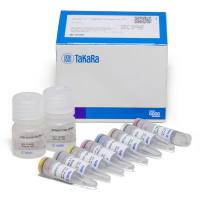Industrial biotechnology employs microorganisms (strains) for manufacture of certain food or industrial products to meet the increasing need of the world. To develop a bioproduction process, the first step is to screen out a production strain from isolated, mutated, or genetically engineered strain candidates. To maximize the bioproduction of a selected strain, bioreaction (fermentation) conditions need to be optimized. Fermentation experiments in shake flasks, bench-scale fermentors, or a combination of both are the conventional methods for both strain screening and fermentation optimization. Shake-flask experiments are easy to handle and cost-effective compared to experiments in fermentors, but the lower controllability makes the shake-flask data less informative for fermentation scale-up. Bench-scale fermentor experiments (>0.5 L) are well controlled under designed conditions and provide high-quality data, but they are also very time- and cost-consuming. The novel microfermentor system (typically <100 mL), or mentioned as microbioreactor, mini-fermentor, mini-bioreactor, or miniature bioreactor, combines the advantages of both shake-flask’s easy handling and bench-scale fermentor’s controllability, thus can achieve comparable results from fermentors at much higher efficiency and lower cost. This chapter introduces an example of how to use a microfermentor system for strain screening and fermentation optimization.






